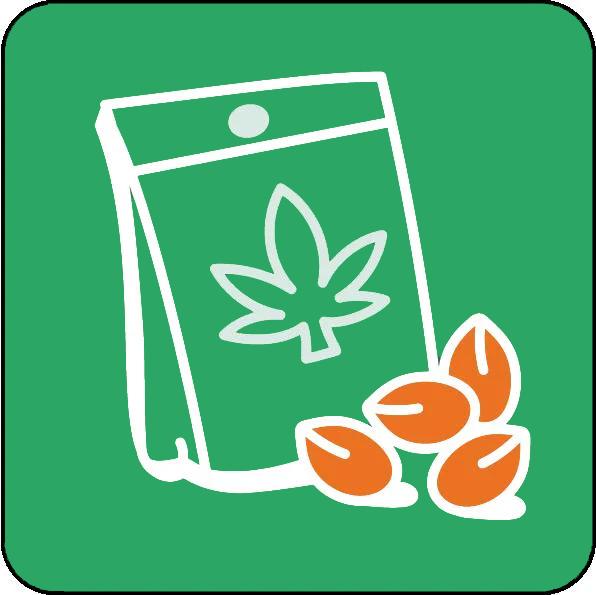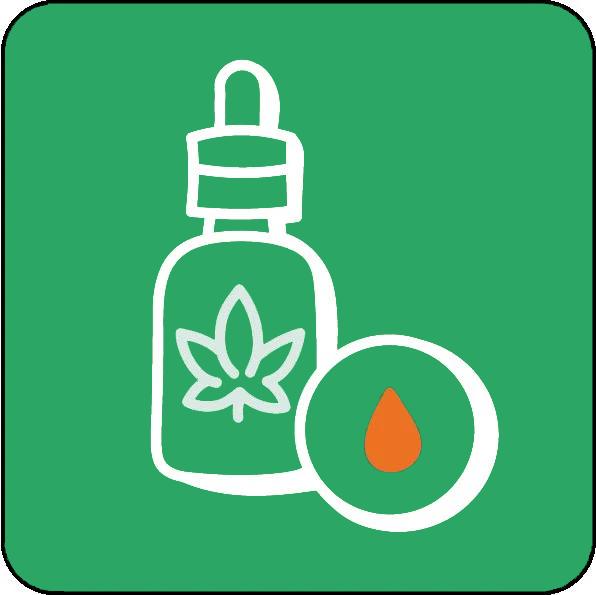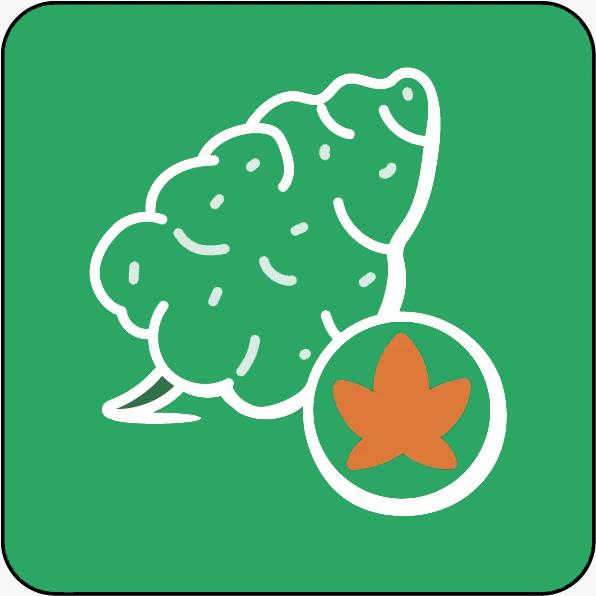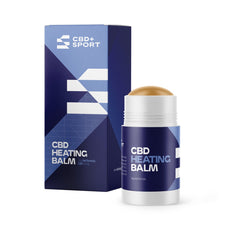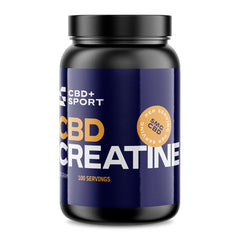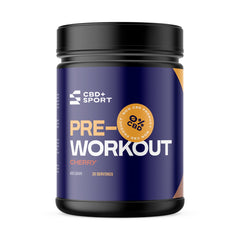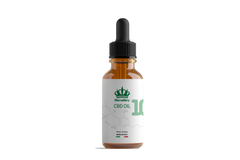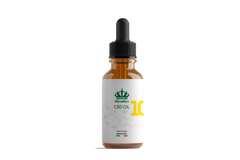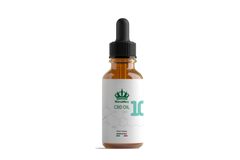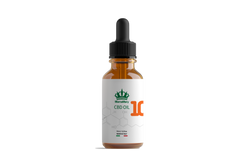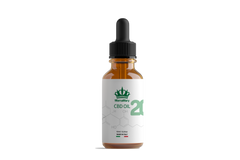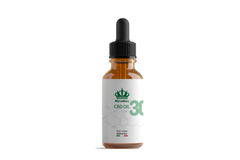Andrew Talansky is almost always sore. The 29-year-old was a professional cyclist for Slipstream Sports for seven years. He recently switched to triathlon and now spends several hours training on and off the bike. “I'm using muscles that have been stagnant for years,” Talansky says. “My body is constantly inflamed.” Many athletes in his situation rely on standard painkillers like ibuprofen, but when Talansky strained a hip flexor last fall, he turned instead to cannabidiol ( CBD ), an extract of the cannabis plant.
“I took it for a couple of weeks, and I immediately saw a noticeable difference,” says Talansky. “And it wasn't just my hip that felt better. I was less anxious, and I slept better."
Marijuana has long been considered an alternative medicine for pain, with THC, the plant's primary psychoactive compound, receiving most of the attention. CBD is another active component and may offer some of the same medical benefits (anti-inflammatory, anti-anxiety, analgesic), but without the side effect of making you high. CBD interacts with the brain's vanilloid and serotonin receptors, which affect mood and pain perception. It also has antioxidant properties. The World Anti-Doping Agency (WADA) removed CBD from its list of banned substances last January, which led many professional athletes, including runner Avery Collins and mountain biker Teal Stetson-Lee, to abandon it. 'ibuprofen for CBD. Some believe it is a safer alternative to drugstore painkillers and anti-inflammatories.
Research on CBD has been slow to accumulate, primarily because the federal government considers marijuana to be a Schedule 1 drug – the same classification given to heroin and LSD – making it difficult for researchers to access for studies. And because many states have already legalized it for medical use, drug companies have little incentive to conduct expensive clinical trials to prove its effectiveness. (CBD remains illegal in several states, which have yet to approve medical marijuana or exemptions for CBD.)
Either way, the CBD market is exploding. According to a study by the Brightfield Group, a market research firm based in Tampa, Florida, hemp-derived CBD generated $170 million in revenue in 2016. With annual sales increasing at a rate of 55 percent, it is poised to become a billion-dollar industry by 2020. Charlotte's Web , which bottles the extract in Colorado, is one of the largest producers in the industry. The CBD that Talansky chose comes from Floyd's of Leadville , also in Colorado, launched in 2016 by former professional cyclist Floyd Landis. Floyd's of Leadville markets its products directly to athletes looking for a natural recovery supplement. “Think about your 40-year-old endurance athlete who wants to feel good when he gets up in the morning,” Landis says. “That's our goal.”
Landis uses CBD to manage pain from a hip replacement in 2016. He has relied on WADA-approved opioid painkillers for years, both before and after he was stripped of his 2006 Tour de France victory for using synthetic testosterone. Eventually, Landis turned to smoking weed to kick his opioid addiction, and in 2015 a friend in the burgeoning marijuana industry suggested he try CBD instead.
“It's the only thing I use now,” Landis says. “I try not to praise her too much, because I don't want to seem crazy. But if you can stop taking other pain medications, if you have a natural solution, that's probably the best option.”
There is research to back up his enthusiasm. A 2008 review by GW Pharmaceuticals examined two decades of preclinical studies and animal trials before concluding that CBD can be an effective tool for pain management, without many negative side effects. A 2016 study from the University of Kentucky examined the effects of CBD on arthritic mice and found that the compound reduced inflammation and overall pain. Some studies have also labeled it as a neuroprotectant, suggesting that it has the ability to strengthen the brain against the damaging effects of concussions. More than a dozen countries have CBD drugs on the market, including Canada and Israel, but advanced trials are still in their early stages in the United States.
“There is overwhelming evidence that CBD can be effective in mitigating pain,” says Jahan Marcu, the chief science officer of Americans for Safe Access , which works to legalize medical marijuana. “But we haven't yet seen the full clinical trials needed to understand exactly how it works.”
Potential CBD users should keep in mind that the scientific community still has a lot to learn about it. For example, there have been no studies on the recommended dosage for a given disease. There is also no scientific consensus regarding how effective CBD is compared to other anti-inflammatories such as ibuprofen or naproxen. But that could change soon: There are now at least 20 clinical trials examining the medical benefits of CBD underway in America, including a $16 million effort from the University of Miami, which is examining CBD's effects on traumatic brain injuries .
Beyond these issues, there is also growing concern about the quality of products currently on sale. Because the federal government considers CBD an illegal drug, the industry is poorly regulated by the FDA, with little third-party oversight. A 2017 study published in The Journal of the American Medical Association found that 69% of CBD products tested did not contain the amount of cannabidiol indicated on the label. Most CBD companies don't sell through resellers; reach consumers online.
“You really can't trust what you buy on the Internet,” says Ryan Vandrey, a cannabis researcher at John Hopkins University and co-author of the 2017 JAMA study . “After purchasing every CBD oil you could buy, we found that several companies were selling products that contained almost no cannabidiol, and others that contained THC.”
While there are still many unknowns, anecdotal and preclinical evidence of CBD's effectiveness continues to grow. Vandrey is conducting a survey of more than a thousand users of marijuana products, many of them containing CBD, and his initial findings suggest that most have seen an overall improvement in pain relief, sleep satisfaction, and reduction in anxiety, even if the cause remains uncertain. And a growing number of athletes, like Talansky, believe that aiding recovery without the long-term side effects of ibuprofen (such as an increased risk of heart failure) or the addictive risk of opioids is a step in the right direction. “I haven't taken an Advil in months,” Talansky says. “For any athlete who trains hard, it means a lot.”
Before Buying
The lack of industry standards can make purchasing CBD risky. If you're planning on stocking up, here are some basic questions to keep in mind.
Is it legal where you live?
Most states have approved some exemptions for medical marijuana or CBD, but it is completely illegal in four states: Idaho, South Dakota, Nebraska, and Kansas.
Has it been tested by a third party?
Independent laboratories test for potency, pesticides and residual solvents. If the company doesn't list these results, move on.
Does the company make unsubstantiated claims?
CBD has not been proven to kill cancer cells, stop Alzheimer's, or treat schizophrenia. Avoid products that promise to cure everything that ails you.


